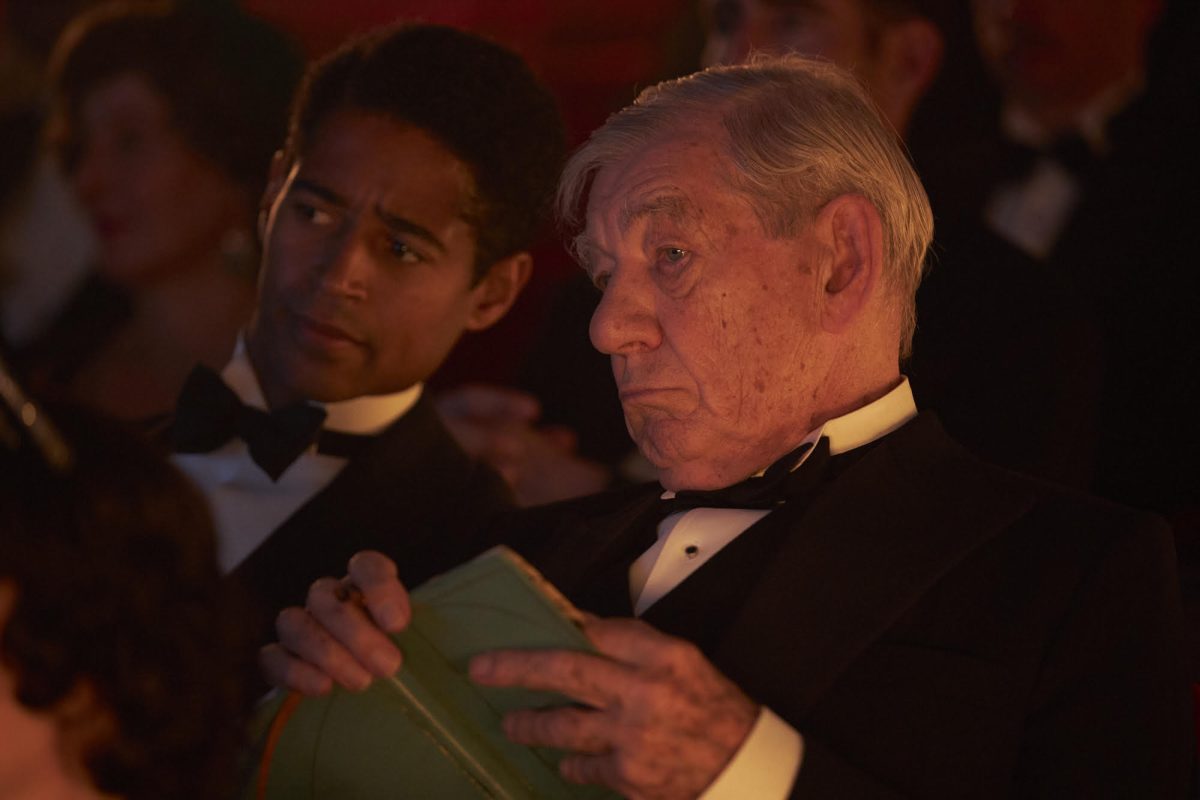Jimmy Erskine (Ian McKellen) is a cold and beastly critic who takes immense pleasure in the fact that he holds the power to make or break a performer’s career with a mere handful of words.
“The Critic,” set in 1934 London, follows Jimmy, chief drama critic of the Daily Chronicle. Jimmy’s status is threatened when the former proprietor of the paper dies, and his son, the Viscount David Brooke (Mark Strong) takes his place. David, with seemingly faux-respect for the old guard, attempts to force Jimmy to write with “more beauty, less beast,” particularly regarding the object of his fantastical obsession, actress Nina Land (Gemma Arterton). Of course, he despises any attempts to censor his vitriolic prose and continues to scathe.
All the while, Jimmy lives an illicit life as a gay man. At this point in history, his very existence was illegal — being gay was a criminal offense. It was not until 1967, 33 years later, that homosexual relationships were decriminalized in Britain. Jimmy is a bully, yes, but perhaps his behavior is informed by the law of the land that bullies him. McKellen approaches this facet of a man who, on the surface, seems to be a one-sided, malevolent ass with such tact and nuance. With his own unique perspective as a gay man who grew up in the same environment, he can truly understand Jimmy.
It is when the critic is drunkenly caught by police while kissing his live-in boyfriend Tom (Alfred Enoch) that he is forced to retire. His brush with the law was the Viscount’s perfect excuse to get the critic out, and he leapt at it. From here, the plot thickens. Jimmy enlists Ms. Nina Land — who confesses to adore him, crediting her love of his work with her career in the theater — to blackmail David and save his position. In return, she will gain his never-ending praise and a life in the theater that will soar to new heights.
McKellen and Arterton brilliantly craft what becomes both an endearing mentor-mentee relationship and a predatory imbalance of power. She plays up the melodramatic ploy for adoration with beautiful longing, while McKellen walks the tightrope of dastardly behavior and defines a man capable of love and care with a tortured soul. The deliciousness of their interactions carries the film, leaving much to be desired from the rest of it.
As Jimmy deals with his sexuality, Nina fights off the advances of her former lover Stephen (Ben Barnes), son-in-law of Viscount Brooke. Their relationship is essentially the B plot of the film, though Barnes is criminally underused. This is a common theme among the supporting actors — Enoch is as brilliant as Tom, yet lacks screen time. The legendary Lesley Manville only receives a measly few minutes as Annabel, Nina’s mother, and Mark Strong — though essential to the core plot — deserved more time to develop the nuances of his character. The complexities are there but do not have the necessary room or time to be seen, resulting in a character who is discussed by other characters but lacks visibility. He is a tortured man, and we hardly get a peek. Each of these characters deserved more.
The runtime of “The Critic” seems to be the root cause of its underutilized cast — it runs for an hour and 41 minutes, nowhere near long enough to neatly tie up all of the plot points and ensure that each of its actors gets their time to shine. By the third act, the piece feels rushed and somewhat clumsy. Major advancements happen abruptly, and the build-up to the climax of the film happens in a very narrow window. It is a surprise that no one sees coming but in an out-of-place way rather than a shock.
Despite these pacing issues and some flat characters, McKellen’s performance anchors the entire film. He shows us, though he has nothing to prove, exactly why he is a legend of the stage and screen. Every nasty word pierces like a knife, every display of his true humanity a warm embrace. He embodies the anti-hero perfectly. He is frustrating, yet we cannot help but empathize with and root for him. The way he executes the tortured man despised by society with a role that could have been reduced to a stereotypical, villainous mustache-twirler is nothing short of magical.
Contact Joe Paladino at [email protected].

























































































































































